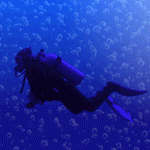General Discussion on any topic relating to CPAP and/or Sleep Apnea.
-
billbolton
- Posts: 2264
- Joined: Wed Jun 07, 2006 7:46 pm
- Location: Sydney, Australia
Post
by billbolton » Sun Mar 20, 2011 4:39 pm
cortez356 wrote:I expected to see where it tried to stop the event...
In general XPAP machines don't try to "
stop the event"
while it is progress, so your expectation is misplaced.
As others have indicated, an xPAP may respond
after an event depending on the circumstances, including pre-cursor events patterns and in-progress assessment of the type of apnea that has just occurred, if there is a
reasonable expectation (based on the knowledge embedded in the xPAP's machine processing algorithm) that a further event may be preventable with such a response.
Cheers,
Bill
_________________
| Machine | Mask | |
 |  |
| Additional Comments: Airmini, Medistrom Pilot 24, CMS 60C Pulse Oximeter, ResScan 6 |
-
jdm2857
- Posts: 2982
- Joined: Wed Aug 20, 2008 8:29 pm
- Location: South Jersey
Post
by jdm2857 » Sun Mar 20, 2011 4:47 pm
I do not believe that any machine will increase pressure during an event. If your apneas were obstructive (not central) did the S9 respond after the events?
In addition to apneas (at pressures below 10) I know that the ResMed algorithm for the S8 and prior responds to snores and flow limitations, both of which are often precursors to apneas, in the hopes of proactively preventing apneas. The S8 will not respond to apneas at pressures above 10 because higher pressures can induce central apneas, and the S8 cannot differentiate between obstructive and open-airway (central) apneas. This restriction was removed in the updated S9 algorithm because of the new open versus closed airway detection abilities of the S9.
jeff
-
DreamDiver
- Posts: 3082
- Joined: Thu Oct 04, 2007 11:19 am
Post
by DreamDiver » Sun Mar 20, 2011 5:11 pm
jdm2857 wrote:I do not believe that any machine will increase pressure during an event. If your apneas were obstructive (not central) did the S9 respond after the events?
In addition to apneas (at pressures below 10) I know that the ResMed algorithm for the S8 and prior responds to snores and flow limitations, both of which are often precursors to apneas, in the hopes of proactively preventing apneas. The S8 will not respond to apneas at pressures above 10 because higher pressures can induce central apneas, and the S8 cannot differentiate between obstructive and open-airway (central) apneas. This restriction was removed in the updated S9 algorithm because of the new open versus closed airway detection abilities of the S9.
I learned something here - I didn't know they responded to snores. I don't snore, so it never shows up for me. Good to know. Thanks.
-
jdm2857
- Posts: 2982
- Joined: Wed Aug 20, 2008 8:29 pm
- Location: South Jersey
Post
by jdm2857 » Sun Mar 20, 2011 5:13 pm
I've seen in ResScan that my S8 AutoSet II responds very quickly to snores.
jeff
-
BernieRay
- Posts: 390
- Joined: Tue Nov 30, 2010 8:21 am
Post
by BernieRay » Sun Mar 20, 2011 6:10 pm
It's not uncommon for me to see a loud snore with a fast peak in pressure with my S9 Autoset. I'm not sure, but I don't remember seeing a loud snore that wasn't accompanied by a quick peak in pressure.
Ray
Diagnosed in 1997
-
Guest
Post
by Guest » Mon Mar 21, 2011 6:18 am
My Resmed S9 takes over thirteen seconds from the time I hit the "on" button to climb to a pressure of 9.9. My old Resmed S8 APAP took slightly over three seconds to do the same. My Phillips Respironics APAP with A-Flex takes about three seconds, if that, to go from the on button to a pressure of about 10.3.
The S9 series is slow.
Eric[/quote]
The S8 and S9 respond differently at switch on. The S9 has a ramp function, the S8 has a settling time. They are different. What you are seeing is the results of this difference.
None of that has any bearing on how the devices respond to events though so is totally irrelevant.












